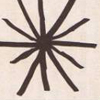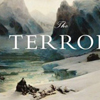Yann Martel has attempted to join Annie Proulx in the prestigious circle of successful novelists to publicly crawl up their own asses on the internet. So outraged that Stephen Harper’s government didn’t increase arts funding enough (they didn’t cut it or keep it the same, mind you, they just didn’t increase it enough), and didn’t stop the gears of parliament to acknowledge his precious self, he launched a petty, idiotic crusade against Harper. Apparently, he plans to send letters and books to the Prime Minister until the man stops doing his actual job of running the damn country and sits down to work his way through the reading list Martel has assigned him. Good luck with that, Yann.
His essay from the Globe and Mail has got to rank as one of the most elitist, arrogant, clueless things I’ve ever read. Certainly, ever read from someone I formerly respected.
Do we count for nothing, you philistines, I felt like shouting down at the House. Don’t you know that Canadians love their books and songs and paintings? Do you really think we’re just parasites feeding off the honest, hard work of our fellow citizens? Truly I say to you, there are only two sets of tools with which the rich soil of life can be worked: the religious and the artistic. Everything else is illusion that crumbles before the onslaught of time. If you die having prayed to no god, any god, one expressed above an altar or one painted with a brush, then you risk wasting the soul you were given. Repent! Repent! But I have no talent for spontaneous prophecy. Besides, guards would have landed upon me like football players and I would have been hustled out, bound for Guantanamo Bay.
Thank-you, state-subsidised millionaire Canadian novelist, for saving us from becoming soulless automata. No, your sacrifices have not been in vain. Is it too soon to start calling you Yann “Book Jesus” Martel?
 Kurt Vonnegut died last week.
Kurt Vonnegut died last week.
I started reading Vonnegut in high school, and I was blown away by his powerful storytelling and his bleak wit. Above all, though, there was the feeling that here was someone who had the same thoughts and ideas that I had, a worldview and temperament that only alienated me from most of my peers. Of course, he was smarter and wiser than me, and expressed himself infinitely better than I ever could, but it was clear he drew strength from some common source of introversion and non-conformity.
Years later, after graduating university and moving to the big city, I re-read several of his books. I was kind of surprised to find his work had not lost any of its impact. If anything, I was even more able to appreciate his blend of pessimistic humanism. Though to be fair, I never really shed my adolescent angst.
The AV Club has a great feature today, which kind of sums it all up. It’s probably time I read his books again.
Also filed in
|
|
 Has a ship ever been more appropriately named than the HMS Terror? A mortar-launching bomb vessel converted to icebreaker, she sailed to Antarctica (a massive frozen volcano, Mount Terror, is named for her) before setting off with her sister ship, the HMS Erebus, on the 1845 Franklin expedition to chart the Northwest Passage. Terror and Erebus became frozen into the ice west of Baffin Island, where the crews slowly starved and froze to death over the course of two horrifically cold winters and thawless summers before making a desperate and doomed trek south. Only years later were a few traces of the expedition found, the bodies showing signs of lead poisoning, murder and cannibalism.
Has a ship ever been more appropriately named than the HMS Terror? A mortar-launching bomb vessel converted to icebreaker, she sailed to Antarctica (a massive frozen volcano, Mount Terror, is named for her) before setting off with her sister ship, the HMS Erebus, on the 1845 Franklin expedition to chart the Northwest Passage. Terror and Erebus became frozen into the ice west of Baffin Island, where the crews slowly starved and froze to death over the course of two horrifically cold winters and thawless summers before making a desperate and doomed trek south. Only years later were a few traces of the expedition found, the bodies showing signs of lead poisoning, murder and cannibalism.
My most recent bout of insomnia has allowed me to finally finish off Dan Simmons’ 784-page novel, The Terror, based on the Franklin expedition. Simmons’ Sir John Franklin is fueled by a combination of Victorian hubris and a desperate need to redeem himself following a previous arctic failure, which leads him to take the expedition into dangerously risky territory (the echoes of Iraq are never overdone, but they’re hard to miss). As a series of catastrophes — natural, manmade and supernatural — unfold, the story shifts to Crozier, captain of the Terror and the huddled band of survivors, at which point, the novel kicks in and never lets up. The survivors must deal with scurvy, mutiny, and winters of constant darkness and unrelenting cold. And that’s not even counting the thing out on the ice that’s killing the men one by one.
The novel paints arctic exploration as inept intrusions on a relentlessly hostile and unforgiving world, exacerbated by the arrogance of explorers who mistake their accidental survival for triumph over nature. Only Crozier and his crew’s determination to survive for the sake of survival keeps them going. As things get more and more dire, it becomes clear that this instinct is not necessarily heroic.
I’ve never read any of Dan Simmons’ other work, but I might have to now. The Terror is a grim story, but it never feels nihilistic — Simmons is surprisingly warm and humanistic even while he’s killing his characters, and the details of 19th-century polar exploration are fascinating without ever interfering with the story. It may be 800 pages long, but it’s a damn entertaining 800 pages.
 My me-time this past weekend wasn’t a total waste for the rest of humanity. I made a lot of changes to the site, and worked on the redesign. Tough questions were asked, like do I put a picture on my front page like an nerdy academic, or remain faceless, like a trendy blogger? In the end, I compromised, by putting up a picture that doesn’t look all that much like me. I’m a bit more of a CHUD in real life.
My me-time this past weekend wasn’t a total waste for the rest of humanity. I made a lot of changes to the site, and worked on the redesign. Tough questions were asked, like do I put a picture on my front page like an nerdy academic, or remain faceless, like a trendy blogger? In the end, I compromised, by putting up a picture that doesn’t look all that much like me. I’m a bit more of a CHUD in real life.
The big change, though, is that I used a few of the huge number of WordPress plug-ins to add info about my media consumption habits. Now you can see what I’ve been listening to, reading, and watching. I actually kind of dig it when I can go to other people’s web sites and find out stuff like that, so hopefully some of you out there will dig it here. I’m especially looking forward to having a forum to write glib little mini-reviews of movies I’ve seen, since I tend to do that on a pretty regular basis anyway.
 Kurt Vonnegut died last week.
Kurt Vonnegut died last week. Has a ship ever been more appropriately named than the HMS Terror? A mortar-launching bomb vessel converted to icebreaker, she sailed to Antarctica (a massive frozen volcano, Mount Terror, is named for her) before setting off with her sister ship, the HMS Erebus, on the 1845 Franklin expedition to chart the Northwest Passage. Terror and Erebus became frozen into the ice west of Baffin Island, where the crews slowly starved and froze to death over the course of two horrifically cold winters and thawless summers before making a desperate and doomed trek south. Only years later were a few traces of the expedition found, the bodies showing signs of lead poisoning, murder and cannibalism.
Has a ship ever been more appropriately named than the HMS Terror? A mortar-launching bomb vessel converted to icebreaker, she sailed to Antarctica (a massive frozen volcano, Mount Terror, is named for her) before setting off with her sister ship, the HMS Erebus, on the 1845 Franklin expedition to chart the Northwest Passage. Terror and Erebus became frozen into the ice west of Baffin Island, where the crews slowly starved and froze to death over the course of two horrifically cold winters and thawless summers before making a desperate and doomed trek south. Only years later were a few traces of the expedition found, the bodies showing signs of lead poisoning, murder and cannibalism. My me-time this past weekend wasn’t a total waste for the rest of humanity. I made a lot of changes to the site, and worked on the redesign. Tough questions were asked, like do I put a picture on my front page like an nerdy academic, or remain faceless, like a trendy blogger? In the end, I compromised, by putting up a picture that doesn’t look all that much like me. I’m a bit more of a CHUD in real life.
My me-time this past weekend wasn’t a total waste for the rest of humanity. I made a lot of changes to the site, and worked on the redesign. Tough questions were asked, like do I put a picture on my front page like an nerdy academic, or remain faceless, like a trendy blogger? In the end, I compromised, by putting up a picture that doesn’t look all that much like me. I’m a bit more of a CHUD in real life.